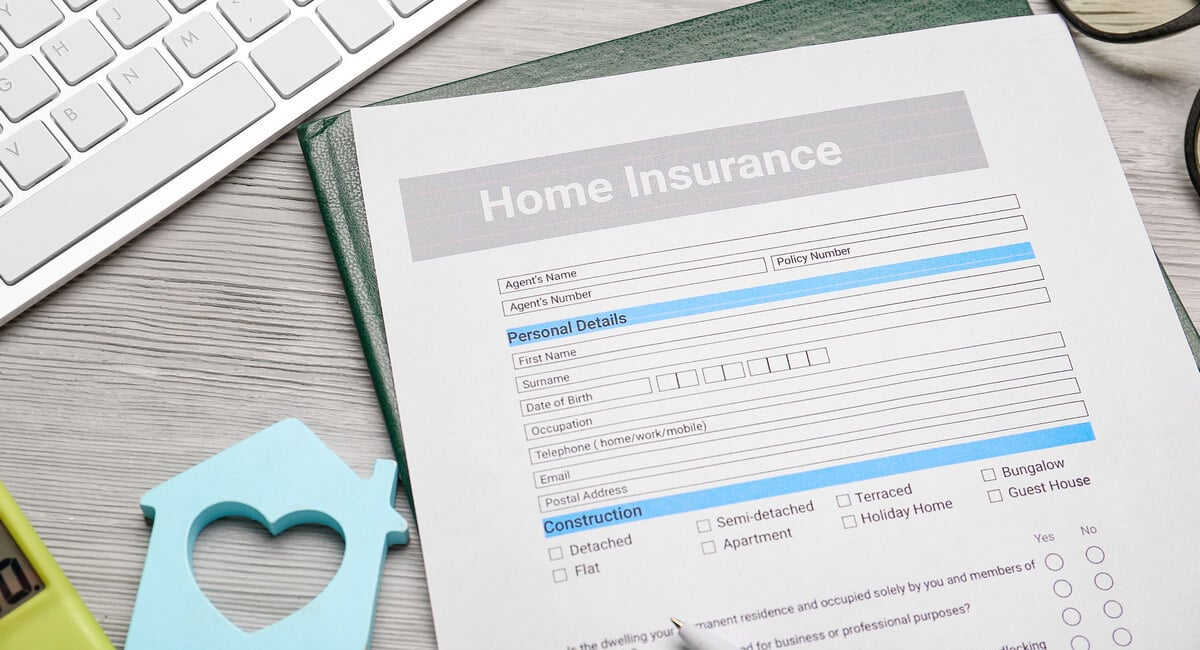Title insurance is one of the many fees you pay when closing on a home. Because there are so many costs associated with buying a house, title insurance may seem like just another bill to pay. The policy might be one of the most important purchases you make, though. You should understand what title insurance is, how it works, and how it benefits lenders, sellers, and buyers.

What Is Title Insurance?
Title insurance is a policy that protects you or your mortgage lender against third-party claims on a property you purchase.
Before you close on your home, a title company will conduct a search of public records, such as deeds, tax records, divorce decrees, and child support orders. This is done to discover any potential issues with the title. Then, they’ll compile the information into a report and share it with your mortgage lender.
About two-thirds of title searches come back clean, so lenders can go ahead and proceed with closing. In one-third of cases, though, title companies find that there are outstanding claims on the property that need to be settled before proceeding with the sale.
Title searches are very thorough, but there’s always a possibility that the title company will miss something or that a claim on the property isn’t included in public records. Title insurance protects you in these instances.

What Does Title Insurance Cover?
Title insurance protects you and your lender from a wide variety of title issues. The following are some of the most common disputes and claims covered under a title insurance policy:
Liens: A lien is a claim to your property made by a lender, tax authority, contractor, or other creditor if the previous owner didn’t pay their bills or debts. When the home is sold, the creditor is entitled to some of the proceeds to pay off the debt.
Easements: An easement allows an individual or organization to use or enter your property for a specific purpose. For example, your utility company may have an easement on your house if you have utility lines in your yard.
Boundary disputes: Boundary disputes and survey errors can happen with your next-door neighbors. For instance, your neighbor may have a survey that shows a different property line than your survey.
Errors in the public record: Mistakes can happen when records are filed at the town hall. A document could be filed under the wrong name, leading to confusion on the ownership of your property.
Claims from an ex-spouse: This issue can occur if a house is bought by a married couple who later divorces. If one ex-spouse sells the house and the other doesn’t sign the deed, that individual could claim ownership of the home.
Overlooked heirs: Issues with heirs can arise when someone inherits a home from a deceased relative and sells it. Another heir could surface after the sale of the home, or a will could be discovered later that leaves the home to someone else.
Forged documents: Deed fraud is rare, but it does still happen from time to time. A criminal could impersonate the owner of a home, sell it, and forge their signature on the deed.
Although title insurance protects you from a number of issues, it doesn’t cover everything. Most importantly, the policy will not protect you against any problems you create. For example, if you fail to pay your property taxes, your local government may place a lien on your home. However, your title insurance policy will not pay your tax debt, pay for an attorney, or provide any other funding to help you settle the dispute.

Types of Title Insurance
There are two types of title insurance: lender’s insurance and owner’s insurance.
Lender’s title insurance protects your mortgage lender in case there are any unresolved claims on your property. Purchasing lender’s insurance is required when taking out a mortgage, and it’s included in your closing costs. If you lose your home because it belongs to someone else, your mortgage lender will file a claim with the title insurance company to recoup the loss of your mortgage payments.
Owner’s title insurance protects you as the buyer. This policy is optional, but it provides valuable protection. Your title insurance will cover the cost of paying off a lien or defending yourself against a lawsuit from someone who claims ownership of your home.

Title Insurance Cost
Title insurance is a one-time cost that lasts for as long as the property’s title is in your possession. The price of the lender’s policy is based on the loan amount, and the price of an owner’s policy is based on the purchase price of the home. Most policies cost between 0.5% and 1% of the home’s cost.
In some states, the price of title insurance is consistent across all providers. In other states, costs can vary, so home buyers should shop around for the best rates.
Lender’s title insurance is always included in the closing costs. In most cases, an owner’s title insurance policy is paid for by the seller during closing. This will be written into your purchase agreement. You can also buy title insurance for yourself after closing on your home.

Benefits of Title Insurance for Buyers
You don’t have to purchase owner’s title insurance or request that the seller pay for a policy. However, title insurance provides a great deal of protection for a fairly low cost. You only have to buy the policy once, and it lasts for as long as you stay in the home.
If you don’t have title insurance, you could be responsible for paying off a lien from the previous owners. Failing to resolve the claims on your property could result in you losing your home. Sometimes, homeowners without title insurance also have to pay attorney’s fees to defend themselves against lawsuits.
Not having title insurance can be financially and personally devastating. It’s incredibly difficult to recover from the loss of your home, but purchasing title insurance can give you peace of mind.

Benefits of Title Insurance for Sellers
Title insurance primarily protects the mortgage lender or the home buyer. Sellers can benefit from title insurance as well, though.
As a seller, title insurance protects you before and during the closing. If any unresolved claims on your home arise during the sale, title insurance will help you settle them. Otherwise, issues with the title could cause the buyer to back out of the deal. Title insurance only costs a small fraction of the proceeds of the sale, but it makes the deal more appealing to buyers and reduces the risk of problems that will delay closing.
Title insurance provides essential coverage when you buy a house. Purchasing lender’s insurance is a requirement, but you should strongly consider buying an owner’s policy, too. You can never know if someone will appear one day to make a claim on your property, so purchasing owner’s title insurance for a small one-time cost could save your home.



